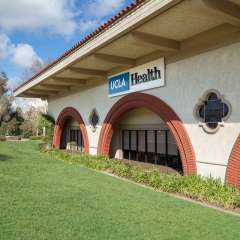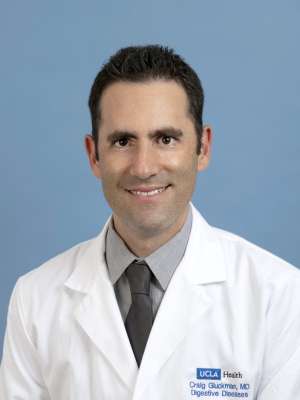Craig Gluckman, MD
- Gastroenterology
About
- Associate Director, Community GI Motility
Dr. Gluckman received his medical degree from the University of the Witwatersrand in Johannesburg, South Africa. Following a year of internship and community medical service, he completed his internal medicine residency through the College of Physicians in South Africa. Prior to relocating to the United States, Dr. Gluckman worked as an internist in private practice for several years.
After relocating to New York City, Dr. Gluckman completed his residency in internal medicine and fellowship in gastroenterology at Mount Sinai Beth Israel Hospital in New York. He went on to pursue additional training at the University of Pennsylvania, completing a further fellowship in esophageal and swallowing disorders. During his training, Dr. Gluckman developed a particular interest in esophageal and gastrointestinal motility disorders.
Dr. Gluckman is board certified in internal medicine and gastroenterology, and is a member of the American Neurogastroenterology and Motility Society. He is a member of the UCLA specialty asthma clinic, focusing on the role acid reflux and other esophageal disorders might play in the control of asthma.
Languages
Education
Medical Board Certification
Fellowships
Residencies
Internship
Degree
Locations

Medical Services
Areas of Focus
Videos
In the News
- Gastroparesis symptoms, treatment, and causes (Medical Expert Interview. (Source: David Geffen School of Medicine at UCLA)
Insurance
- Aetna
- Anthem Blue Cross
- Blue Shield of California
- Centivo
- Cigna
- First Health
- Health Net of California
- Interplan (part of HealthSmart)
- Medicare Advantage
- MultiPlan
- UFCM Health System
- Prime Health Services
- Private Healthcare Systems (PHCS)
- TRICARE
- UnitedHealthcare
The list of health care plans above may not be comprehensive and could change.
Please contact your benefits coordinator or health insurance company directly to verify coverage.
Visit our health insurance information page for more details.
